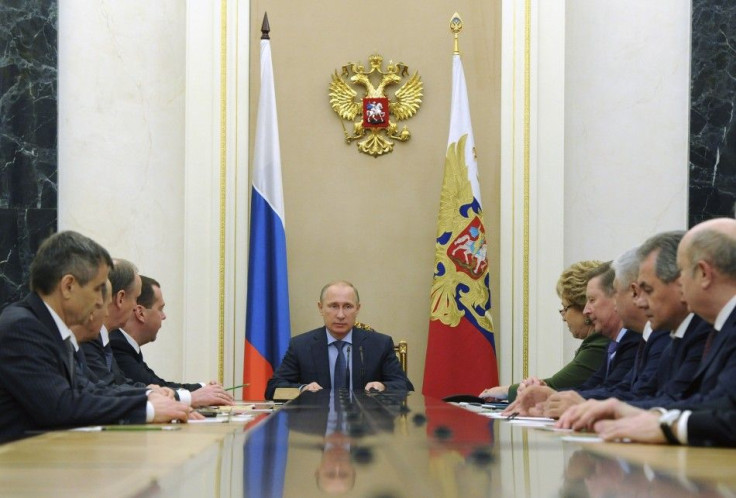Russian Military Stronger Against Brimming War with US, Troops/Weapons Dwarf Central Asian and Eastern European Nations

World officials warned before those efforts of the United States to isolate Russia can lead to dangerous grounds. As Russia responded angrily over the West's initiative to impose more sanctions, the question now boils down to whether the former has enough military power to retaliate. How strong is the Russian military against international tensions?
The U.S. Congress passed a bill last Thursday in an attempt to impose sanctions on Russia's moves in Ukraine. While bill passing has greatly been scrutinized in the country, the Congress pushed through with the initiative and went with "Ukraine Freedom Support Act of 2014." The bill places a sanction on Russian oil production imports and weapons exports.
The bill also deals with boosting financial transfers to Kiev according to Forbes. It goes as far as allowing weapons transfer to the region. According to officials, the act aims to help Ukraine address problems. However, analysts believe otherwise. As such with Forbe's Doug Bandow, according to the author: "Congress appears determined to turn an adversary into a forthright enemy and encourage retaliation against more significant American interests."
Russia did not like the move as leading Russian parliamentarian Mikhail Emelyanov said last Saturday that Russia (via Global Research Center for Research on Globalization): "cannot calmly watch as the US arms Ukraine with the most modern lethal weapons. In this regard, we should not appear weak. The situation is very alarming. Judging by US intentions, they want to turn Ukraine into a fighting platform against Russia."
In light with this, Newsweek looked into the Russian military force evaluating its capability and status against other forces from across the globe. Despite the world neglecting Russian military following Soviet collapse, it is important to understand that the country has undergone a historic overhaul which may mean implications for the security and politics in the Eurasian region. According to Newsweek, looking into weapons and troops will put Russia ahead of its Central Asian and Eastern European neighbors. Moreover, Moscow has placed considerable troops across regions as follows:
- Armenia (3,200)
- Georgia's breakaway regions of Abkhazia and South Ossetia (7,000)
- Moldova's separatist Transnistria region (1,500)
- Kyrgyzstan (500)
- Tajikistan (5,000)
For a more detailed view of the statistics, click here.
Russian ground forces undergo reorganization and professionalization as part of the country's defense reforms. Airborne Assault Forces reaching up to 35,000 are under the direct commands of Vladimir Putin. It is also considered as the elite crisis-reaction force of Russia. Moreover, Newsweek also placed the nuclear arsenal of the country comparable to the United States.
Moscow oversees around 1,500 strategic warheads. The numbers still follow the New START treaty with the United States but this does not change the fact the Russia is out to modernize its nuclear capabilities. While Russian air power is restricted at the moment, the report noted that it will only be for a short span of time. Sukhoi, an aircraft manufacturer, has been working on a number of advanced warplanes including fifth-generation stealth fighter or the T-50.
More importantly, Russia has been putting the modernization of its military power including space and air defenses as top priorities.





















